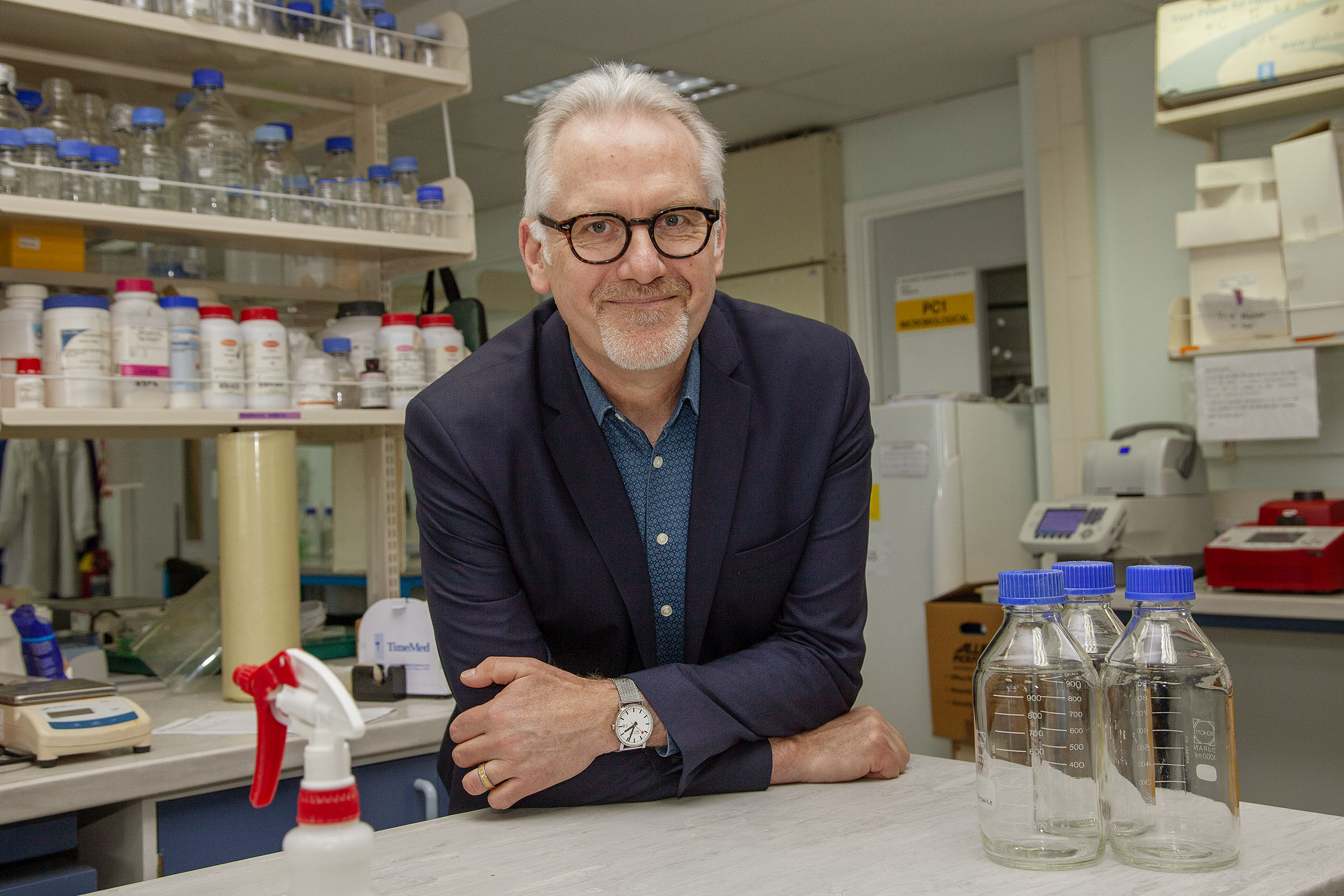
Decades on, the now professor and world-renowned expert has been awarded the University of Otago’s highest distinction.
Professor David Murdoch is this year’s recipient of the university’s distinguished research medal. It is awarded for outstanding scholarly achievement, including the discovery and dissemination of new knowledge, or development of concepts that lead to significant advances in the field.
The Christchurch-based researcher is a recognised world leader in the study, prevention and treatment of infectious diseases, particularly pneumonia and other respiratory infections.
Among his notable achievements are a leading role in a Bill and Melinda Gates Foundation-funded global study of childhood pneumonia that changed the way the disease is diagnosed, treated and prevented in developing countries; and years of research on legionnaires’ disease that culminated in the establishment of a New Zealand-wide surveillance system.
He also co-director of the One Health Aoteaora research alliance, a diverse network of infectious disease experts working to address health hazards related to animal and environmental factors. He also works at the Canterbury District Health Board as a clinical microbiologist.
In recent months Murdoch has advised the Government during the Covid-19 pandemic and was one of three international experts invited to advise the Oxford University team developing a vaccine for Covid-19.
Murdoch said Covid-19 has highlighted the global importance of infectious disease risks and the need for the whole world to work as one to address major global threats. It has also highlighted the importance of research and scientists’ role as translators.
“The Covid-19 pandemic has shown us the importance of science-informed policy and the critical need for clear and trusted communication.”
Murdoch said the pandemic has also highlighted the need for kindness, leadership and equity.
He said one of the highlights of his career has been working with many wonderful groups and individuals.
“To be part of a large global network of values-driven researchers, including many New Zealand colleagues, has been an absolute highlight … these colleagues are all friends, including some of my closest, and I am a strong believer in the importance of friendship in successful research endeavours.”
He said research leaders have an important role to play in creating environments where others flourish; in building capability, mentorship and diversity; and addressing inequities.
University of Otago Vice Chancellor Professor Harlene Hayne says the award is richly deserved.
“Professor Murdoch is the epitome of a leader. He works tirelessly to progress the understanding of infectious diseases and because of his mana in the field and gift for communication and collaboration, he has been able to ensure his research findings are implemented and make a difference to the health of individuals and communities.
“One significant example of his impact was the critical part he played in the establishment of a national vaccination programme for all Nepalese children, which happened because of his rigorous research and ability to work with governmental agencies and the World Health Organisation.”
University of Otago deputy vice-chancellor, research and enterprise, Professor Richard Blaikie says Murdoch stood out among other highly deserving nominees for the quality of his research as well as the benefits it has for people and communities globally.
“David clearly cares deeply about translating research into impact and is a shining example for many researchers to follow.”












